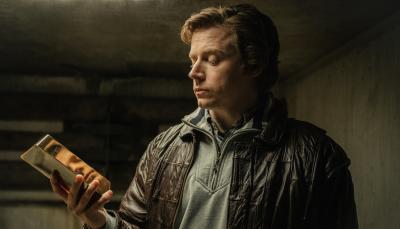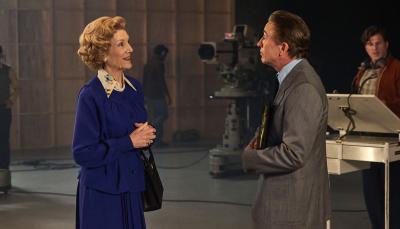Jodie Turner-Smith Shines in an Uninspired 'Anne Boleyn'
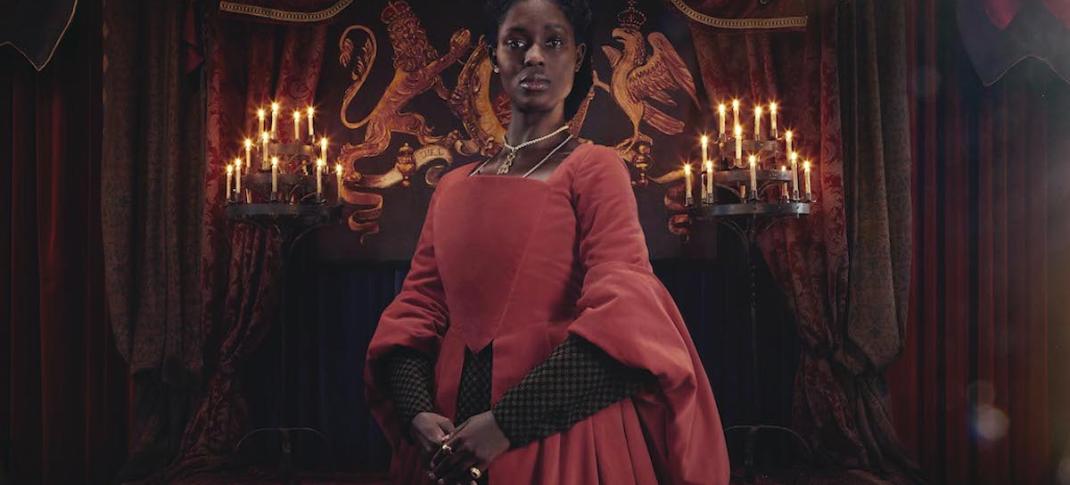
Jodie Turner-Smith as Anne Boleyn - Anne Boelyn _ Season 1 - Photo Credit: Parisa Taghizadeh/Fable/Sony/AMC
© 2021 Fable Pictures & Sony Pictures Television & AMC Film Holdings LLC. All Rights Reserved.
For the better part of 500 years, we've been obsessed with the story of Anne Boleyn. Queen of England in her own right, her life is largely remembered for the facts of her death - and her inability to give her insane husband King Henry VIII a male heir. But the real Anne was witty, well educated, and ambitious, a usurper queen who was hated by many in her time but also happened to be deeply religious and a key player in bringing the Protestant Reformation to England. Her husband was (at one point anyway) so in love with her that he basically broke the world for her sake, and her daughter Elizabeth Tudor would go on to become one of the greatest monarchs in all of history.
Anne was a study in contradictions and source of cautionary tales, a woman who feels familiar to us now because she wanted so much then -- so much that she was not supposed to have. She was probably not the proto-feminist so many of us long to think of her as, but she was remarkable in ways that still deserve to be both remembered and celebrated today. On some level, it feels as though if we just tell her story often enough, somehow it will turn out differently. This time, a woman who was so ahead of her time will somehow not be ground down by a world that trades in misogyny, will not lose her life to the whims of a powerful man who had simply tired of her.
But things sadly remain the same as they ever were in the new three-part miniseries Anne Boleyn - for all that the series made waves with its decision to cast actress Jodie Turner-Smith in its lead role, the AMC+ drama is remarkably bland and uninspiring, offering little in the way of new insight into Anne's life and failing to even be a particularly entertaining recreation of her death.
In the world of Tudor dramas, you usually get one of two types of shows: Serious prestige pieces like Wolf Hall that take themselves very seriously, or decadent soaps like The Tudors, which are full of sex and heaving bosoms and lean into the trashy heart of the six wives saga. This Anne Boleyn tries to be both and ends up neither, attempting to portray Anne's sexually adventurous dalliances with her husband (choking as foreplay is new!) even as it insists on depicting her as an alien other in the world of Henry's court, alone in a way the real Anne simply wouldn't have been. (Yes, her rise from a lady in waiting to the queen was astonishing and generally unprecedented, but it's not like Henry picked her off a bush by the side of the road one day. I mean, she wasn't even the only member of her family who married this man!)
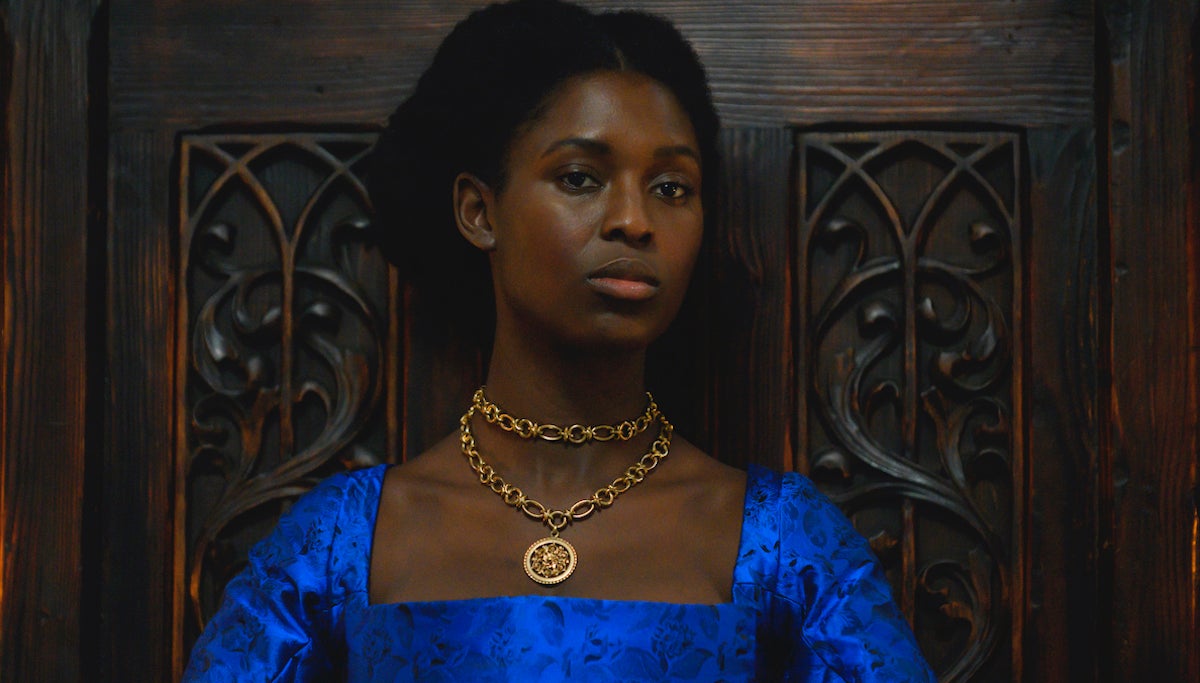
Set in the final five months of her life, this Anne Boleyn frames Anne's story as a literal ticking time bomb, with title cards alerting viewers at the start of each episode just how long she has left to live. This narrative trick adds a certain level of urgency to early proceedings, though it also makes the final beats of Anne's fall, from her third miscarriage to Henry's abandonment and her journey to the Tower of London, feel strangely rushed.
Unlike the historical woman whose life is at its center, this Anne Boleyn is oddly flat and lacking in ambition. Beyond casting a Black actress as the doomed queen - which ends up being an interesting visual commentary on the marginalization that takes place in the final months of Anne's life - the show has almost no interest in saying anything substantial about who she was. The real Anne, one must assume, was a person who made things happen in her life, from her initial rise at court to her determination that Henry would not have her unless he married her. (Whether that's true or not is lost to history, but clearly, she was an active participant in her own story, in a way that this fictional version is simply not.)
Instead, despite her obvious - and frequently incandescent - rage about the deteriorating situation in which she finds herself, this Anne feels remarkably passive and one-note. Things happen to her. Things happen around her. She is often framed as the victim of a world that's set up and catered to men --- which feels more than fair considering what happens to her --- yet rarely presented as more than an archetypal Mean Girl, whose nastiness has little context behind it. (Though honestly, I enjoyed Anne's catty conversations with Jane Seymour. Lola Petticrew has Jane's good-girl-for-her-own benefit act down cold.)
Possibly what's most upsetting, however, is that we, as viewers, are given little opportunity to see the woman Anne would have been once - the brilliant and ambitious climber who charmed a king and rose high enough to fall so far in the first place. Instead, we are only shown her unraveling, and though Anne Boleyn purports to be a feminist retelling of her life, it also spends a rather uncomfortable amount of time telling us about the ways she was betrayed and victimized.
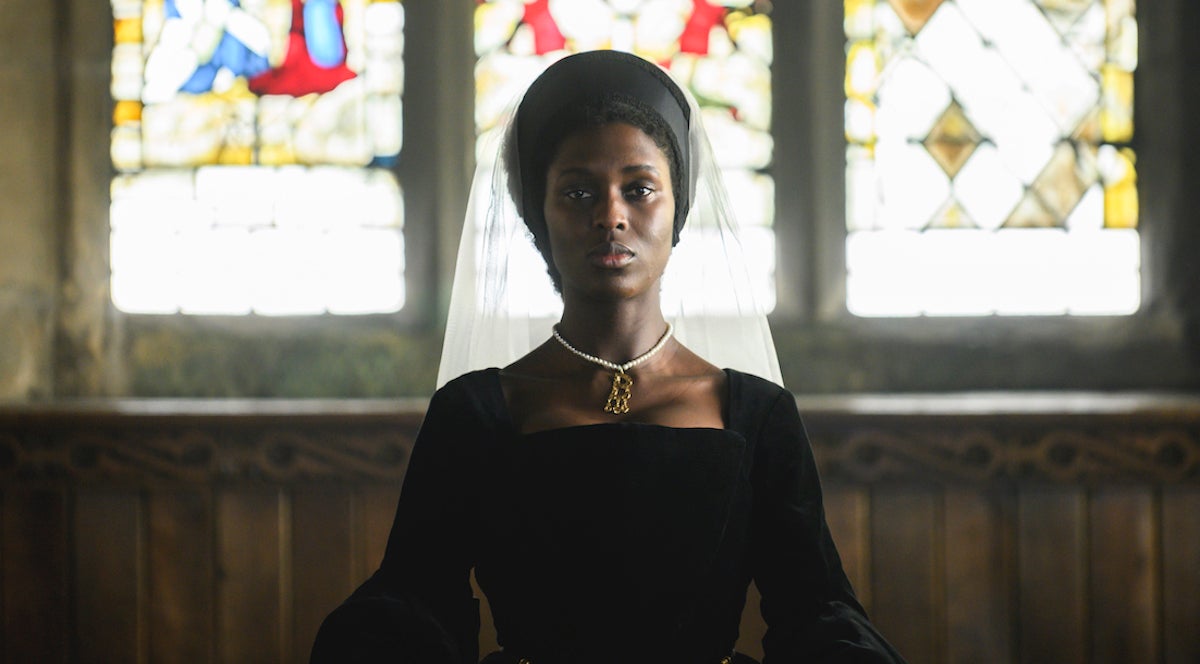
Despite the controversy surrounding her casting, Turner-Smith's performance is easily the best part of this production. Regal and furious, she makes the most of the few opportunities she is given to show us a woman raging against the dying of the light, and every inch of her husband's many betrayals shows on her face, whether she is allowed to verbally express her feelings about them or not.
But though Turner-Smith boasts great chemistry with I May Destroy You's Paapa Essiedu as her equally doomed brother George Boleyn, the show doesn't make much of its unorthodox casting decisions. There is no real effort to wrestle with the racial implications of its casting choices or to use them to say anything particularly interesting about the way Anne, as a woman, was treated by those around her or why that might have happened. The rest of the Howard clan are all played by white actors, and George is married to a white Jane Rochford (played by Anna Brewster) who gets painfully little to do beyond being generally jealous and cruel. Yet, the silent goodbye between the two siblings is one of the series' most affecting scenes.
In the end, Anne is convicted of adultery and treason and dies at an executioner's blade, as she must because she did, a fact that we still can't seem to make our peace with all these years later. Unfortunately, this recounting of her death is unlikely to inspire any new insights about her life, leaving us once more to mourn what might have been. In more ways than one.
Anne Boleyn is now streaming on AMC+


